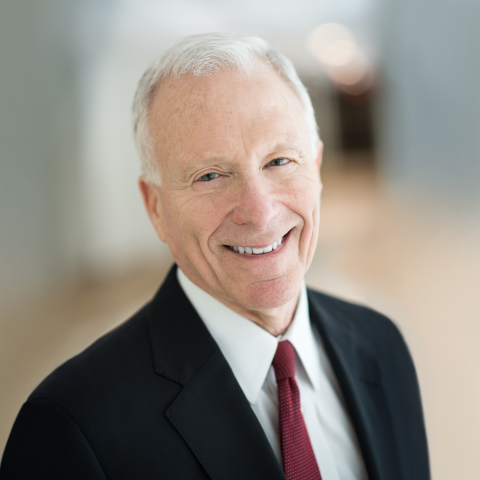"We are facing a new reality and a new Iraq." So declared Masoud Barzani, president of the Kurdistan Regional Government (KRG) of northern Iraq, to visiting Secretary of State John Kerry. Two other Kurdish officials, Fuad Hussein, Barzani's chief of staff, and Falah Mustafa Bakir, the foreign minister, elaborated this week: The new Iraq is not Iraq at all.
The old unitary Iraq has been demolished. The radical Sunni Islamist movement heretofore known as the Islamic State of Iraq and al-Sham (ISIS) has captured much of Sunni Iraq and declared itself the Islamic State. None of the three regions of new Iraq -- Kurd, Sunni and Shia -- is well positioned to restore the whole, nor is it clear they want to.
The Islamic State's easternmost conquests have severed the KRG from the central government in Baghdad. Having seized the oil-rich town of Kirkuk -- a historic ambition -- to keep it from the Islamic State's grasp, the KRG will be reluctant to return it to a re-unified Iraq. Indeed, the Kurds, long seeking independence, will drive hard terms before even temporarily resubmitting to the Shia-dominated Baghdad that they believe has treated them badly.
For now, the Kurdish army, the Peshmerga, can defend its territory. Only a failed Kurdish offensive into Arab Iraq would leave their homeland vulnerable. The Kurds will not readily drive the Islamists from Iraq.
Meanwhile, the Islamic State spews hatred toward the Shia. It will harass the Shia of the south, but lacks the manpower or firepower to truly confront and defeat them. Syrian President Bashar al-Assad, seemingly assured of survival for now, will surely torment their Syrian rear.
In time, the Islamic State may face an internal threat from disaffected, local Sunni supporters. Indeed, the last Islamists to govern there suffered internal rebellion; but this time a credible, long-term commitment of U.S. soldiers and cash will not be on hand. A successful internal rebellion is unlikely to sprout any time soon.
The Islamic State's larger concern would be a reorganized, Iraqi army coming north to dig them out. However, a leadership fight currently entangles Baghdad, which struggles to defend its remaining territory. Shia militia called forth by Iraqi Ayatollah Sistani will defend Shia regions. But at least for now, Kurds claim, discord between the Shia and the old Iraq's army makes a joint offensive to clear and occupy Sunni lands unlikely.
The Islamic State is murderously hostile to all its neighbors: Turkey, Syria, Baghdad, KRG, Saudi Arabia, Jordan and Iran. As the newly proclaimed caliphate, it regards their regimes as illegitimate. Many have an interest in its demise, but do any have both the capacity and the will to eject the Islamists?
The Kurdish representatives suspect they don't on both counts. Iraq's Sunni neighbors have funds, but lack the forces. Among regional powers, this leaves Iran.
The Iranians will want to see Baghdad defend its remaining territory, but they have other interests as well. Driving the Islamic State out means its fighters and arms flow back into Syria before Iran's proxy in Damascus is ready for more troubles.
More fundamentally, so long as the Islamic State remains a threat, both Shia Iraq and America will have reason for concern. This gives Iran substantial leverage over both -- leverage lost if this threat were removed.
Meanwhile, lesser efforts to assist Shia Iraq will increase Iranian influence in the country, and may dissuade the Americans from making serious efforts to disrupt Iran's nuclear progress. Iran covets solidifying long-term dominance over Shia Iraq and its vast oil reserves. Meanwhile, near-term turmoil in Iraq drives up prices for Iranian oil by slowing significant further investment in Iraqi production.
All this suggests Iran will not rush into a fight to expel the Islamic State. Only America remains as Iraq's potential white knight.
America has much to lose if the Islamic State remains. It threatens the stability of states about which we care -- Jordan and Saudi Arabia most notably -- and the reliability of oil markets.
As President Obama recently acknowledged, the Islamic State presents a Taliban-like home for anti-American terror. It has declared its hostility toward America and promises in time to draw blood. Supplies of arms or air strikes alone offer America relatively low cost options, but may not reclaim land without Shia forces invading from the South. None of these maneuvers will be welcomed by Iraq's Sunnis.
President Obama has invested troops and treasure for six years to curtail terror threats in Afghanistan, with questionable results. Meanwhile, the Islamists are seizing their long-term dream -- an Islamist state in the Arab Muslim heartland; the Iranians are tightening their grip in oil-rich Iraq; and politics in Iraq have ruptured, making progress ever more elusive. If these trends remain, history may not judge the president's trade-off in Iraq kindly.



















